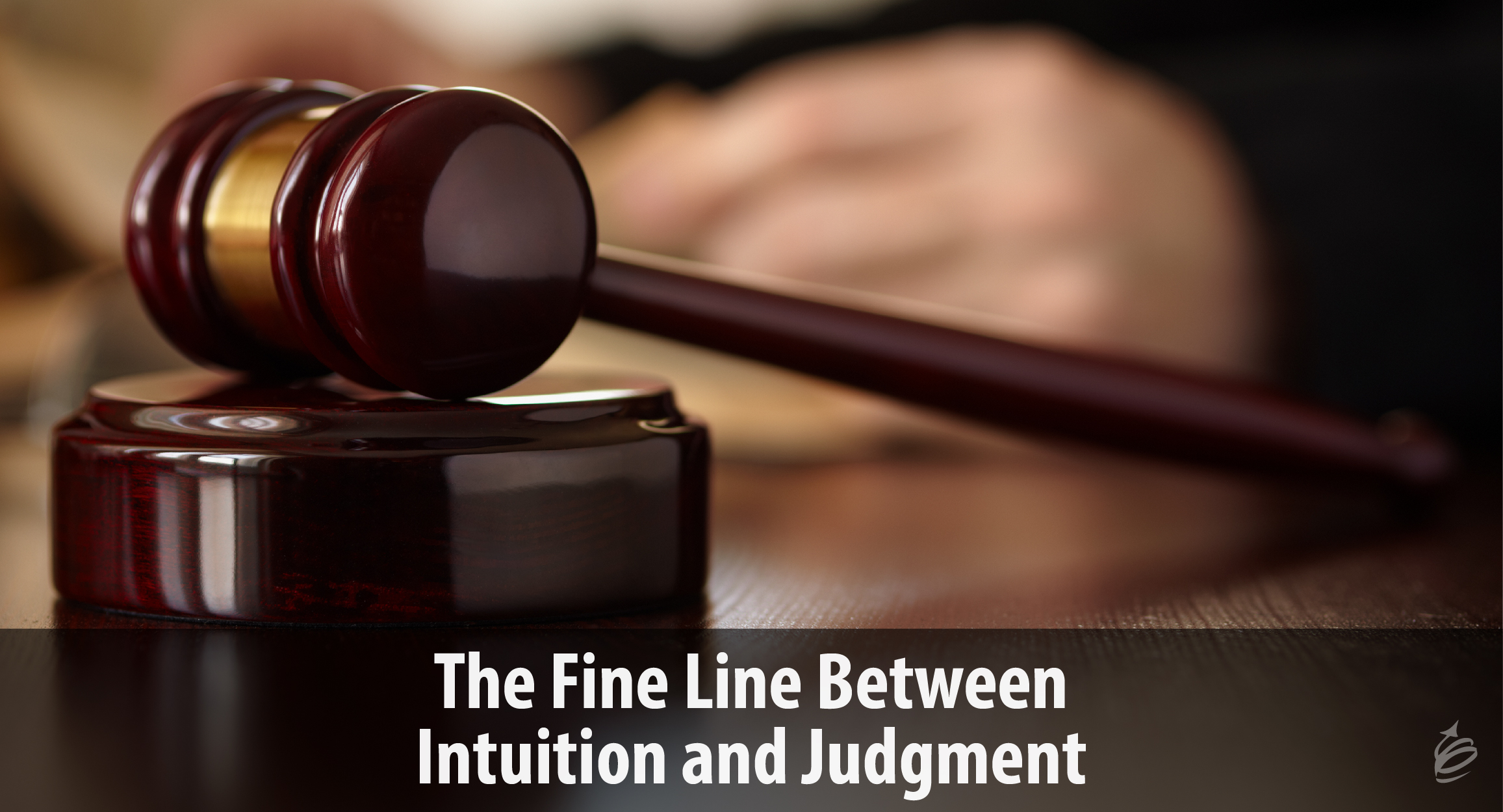 I could give you examples of the premise of this article every week. This particular week I spent in New York City on vacation with my wife and daughter. I will share two examples from our experiences to define the fine line between intuition and judgment.
I could give you examples of the premise of this article every week. This particular week I spent in New York City on vacation with my wife and daughter. I will share two examples from our experiences to define the fine line between intuition and judgment.
Sunday, sitting in a restaurant by the street. It is raining outside, and I find myself people watching – more specifically watching people’s feet and their shoe choices. I notice people with cloth shoes, soaking wet. I notice shoes untied. I notice basically every type of shoe in my ten minutes of watching. Mostly, I think about how many people made shoe choices for this day that I wouldn’t have made.
If I were to judge, I would say something like “What are they thinking? Why not wear shoes that will keep your feet warm and dry, or shoes that won’t be damaged by the rain? If you are going to walking through town, won’t their feet get sore, or blisters form if they don’t tie their shoes tighter?”
Each of those questions are framed from my perspective, and each of those questions come from a place of judgment, from assuming the worst, from assuming people aren’t as smart as I (obviously) am. You see, I like warm dry feet, and I try to take care of my shoes. I also wear my shoes tight around my feet to keep my feet from slipping in my shoes.
With a (very) little effort, you can come up with logical reasons people were doing all of the things I was judging them for – and while they still might not be the choices I would make, that wouldn’t make them wrong . . . would it?
Tuesday, another dreary and dark day. After exiting the 9-11 Museum, I looked up at the Freedom Tower and I can only see up about 15-20 stories before the fog obscures my view. I think to myself, why would anyone go up in any of the tall buildings today, you wouldn’t be able to see anything?
Another judging question, assuming that people aren’t observant or not thinking before they pay their fee to hop on an elevator. There are multiple problems here: Maybe no one is going up, or maybe they are going up for different reasons. Maybe they are a photographer, wanting pictures above the fog layer, looking at the city in a different way. Maybe they are going up on that day because there is special significance in the day, maybe they don’t like crowds, or maybe they have been up on a clear day, and want a different experience. These are just a few of the possibilities, but each of these possibilities (and perhaps many others) make my judgment faulty and dangerous, don’t they?
I could go on, but I don’t really want you to know just how faulty my thinking is sometimes. In both cases, I moved to judgment far too quickly.
But wait a minute, could my assumptions about these situations be correct? And if they are, wouldn’t they justify or validate my judgment?
Maybe.
The problem with judgments is that once we have decided, we stop looking for other options or explanations. When we judge, we have found the “truth” and we stop looking. Further, when making a judgment about a person, we quickly move that one judgment to a whole set of beliefs and further judgments about them.
As human beings living in a complex world, we use our brain to make hundreds of decisions each day. Judgments are necessary for us to function in our daily lives and many are accurate, or at least aren’t likely to cause problems if they are wrong. The problem is in making that our subconscious habit – to move from intuition to judgment in situations where it doesn’t serve us best.
As leaders, we must recognize that judgments made about people can often be incomplete, if not misleading or inaccurate. We must use our intuition, and when we judge, we must be self-aware enough to recognize that is what we are doing, and make a conscious decision on whether judgment is helpful or accurate in that situation, rather than operating purely on autopilot.
There is a fine line between intuition and judgment. I hope you approach it carefully, intentionally, and consciously. When we do that, we will be better leaders, coaches, parents, friends, learners, and human beings.

When I find myself passing judgment, I try to remind myself that if I think I can do it better, maybe I should do it, which usually leads me to realize I don’t know all the details as to why they do it the way they do.
When people suggest I should be in management roles as they think I would be better than their current boss, I tell them, “I can’t guarantee I’d be any better, I would just be different.” So when I see I’m judging others I don’t know their motivation for doing what they do only that people are quick to judge how they do it.
Solid article, good read.